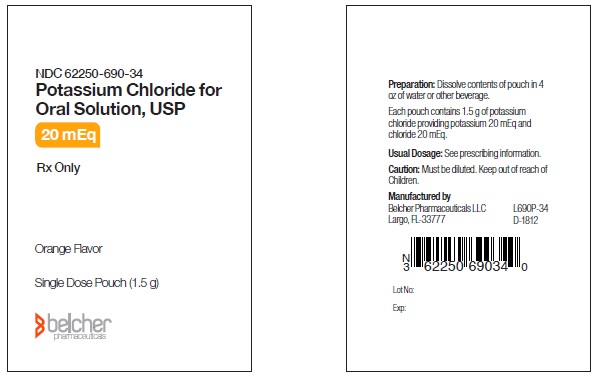Potassium Chloride For Oral Solution Powder, For Solution while Breastfeeding

What is Potassium Chloride For Oral Solution Powder, For Solution used for?
Is Potassium Chloride For Oral Solution Powder, For Solution safe to use while breastfeeding? Can it interfere with growth and development of my kid?

Potassium Chloride For Oral Solution Powder, For Solution Breastfeeding Analsys
Potassium chloride while Breastfeeding
SafeCAS Number: 7447-40-7
Human milk has a potassium concentration of 13 meq/L, almost a half of rehydration solution content and a quarter of maximal IV recommended dose. Potassium supplementation does not alter milk concentration without increasing mother’s serum concentration, which is strictly limited from 3,5 to 5,5 meq/L.
What should I do if I am breastfeeding mother and I am already exposed to Potassium Chloride For Oral Solution Powder, For Solution?
Potassium Chloride For Oral Solution Powder, For Solution is safe in breastfeeding and should not create any health problem for your baby but in case you feel any health issue associated with Potassium Chloride For Oral Solution Powder, For Solution you should contact your doctor or health care provider. Be it pregnancy or lactation you shall keep your doctor informed.
My health care provider has asked me to use Potassium Chloride For Oral Solution Powder, For Solution, what to do?
Usage of Potassium Chloride For Oral Solution Powder, For Solution is safe for nursing mothers and baby, No worries.
If I am using Potassium Chloride For Oral Solution Powder, For Solution, will my baby need extra monitoring?
No
Who can I talk to if I have questions about usage of Potassium Chloride For Oral Solution Powder, For Solution in breastfeeding?
US
National Womens Health and Breastfeeding Helpline: 800-994-9662 (TDD 888-220-5446) 9 a.m. and 6 p.m. ET, Monday through Friday
UK
National Breastfeeding Helpline: 0300-100-0212 9.30am to 9.30pm, daily
Association of Breastfeeding Mothers: 0300-330-5453
La Leche League: 0345-120-2918
The Breastfeeding Network supporter line in Bengali and Sylheti: 0300-456-2421
National Childbirth Trust (NCT): 0300-330-0700
Australia
National Breastfeeding Helpline: 1800-686-268 24 hours a day, 7 days a week
Canada
Telehealth Ontario for breastfeeding: 1-866-797-0000 24 hours a day, 7 days a week
